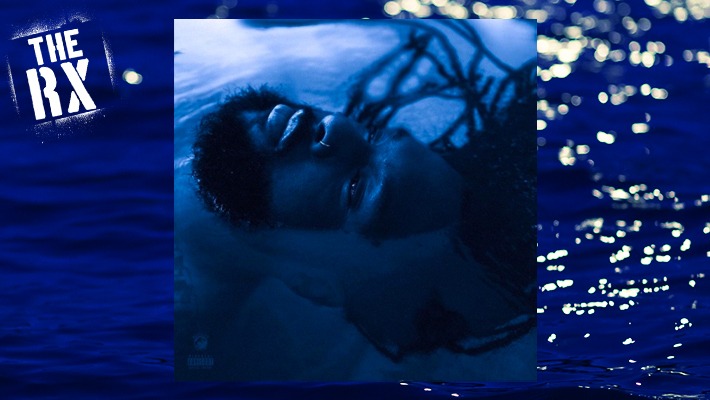The RX is Uproxx Music’s stamp of approval for the best albums, songs, and music stories throughout the year. Inclusion in this category is the highest distinction we can bestow and signals the most important music being released throughout the year. The RX is the music you need, right now.
On the first song of his new album The Blue Hour, Rexx Life Raj points out how little actually likes the album. “I really only like a few songs on this album,” he muses. “All these feelings still inside me, wanna go in-depth about them.”
Weirdly enough, I find myself agreeing with his assessment. Not in the sense that the music isn’t good; on the contrary, it’s still the same quality we’ve come to expect of the ever-consistent Bay Area rapper. But, written as it was in the immediate aftermath of losing his mother to cancer — and then losing his father less than a year later — it’s a difficult album to get through.
The emotions Raj unpacks throughout the project’s 12 songs are so raw and visceral that The Blue Hour unlocked many of my own anxieties about losing my parents. I’m of the age that many of my friends and loved ones have had to lay their progenitors to eternal rest, and hearing a rapper whose music I’ve invested so much of myself into detail his struggles to process the grief of his mother’s passing got me thinking about the eventuality of having to do the same myself — and the realization that I’m not ready to.
It’s been said that the mark of great art is that it makes you feel something. If that’s the case, then The Blue Hour is one of the greatest hip-hop albums I’ve ever heard. Rexx Life Raj has always been gifted at scene-setting with his words but here, the intensity with which he evokes such an acute sense of loss and despair hits like a cavity pain. Hip-hop music often deals with mortality, but rarely in the way that Raj does here.
While death in rap primarily revolves around the pervasive paranoid sense of sudden death as the result of turf wars and revenge, I haven’t heard very many albums that impress on the listener the helpless dread of watching a loved one slowly, inexorably waste away. Making it all the more unbearable is Raj’s extensive use of recordings of her voice as she professes her belief that everything will be okay. “The thing about grief is it don’t have a warning,” he offers, as if in response. “It comes as random as birds chirping in the morning.”
Even the braggadocio typical of the genre is informed by his loss. On “Save Yourself,” Raj rhymes about pulling up shining and staying on the grind, but when he says, “Ain’t nobody finna come save you / You gotta save yourself,” that absence holds the weight of the elephant in the room plus a couple of unruly silverback gorillas. Our parents are supposed to be there for us. Then, one day they aren’t, and we must do everything for ourselves without the safety net they provide. As Raj puts it, we must learn to “say goodbye to the fear and let it disappear,” because we’re on our own.
Raj also struggles with his faith. While his mom reiterates her trust in God, on “Hands And Knees,” he admits to feeling like prayer is futile: “Talking to God with all this praying / Don’t wanna be strong no more, it’s overrated.” His frustration is exacerbated by the apparent indifference of those friends and family members who fail to check in to show their support — another relatable trial of life. The album’s ostensible love songs also make note of how this breach of trust suffuses his romantic relationships. On “Beauty In The Madness” with Wale and Fireboy DML, the upbeat Nigerian pop-influenced beat belies his melancholy outlook. All he wants is someone to help make sense of his hectic life.
In fact, most of the beats on The Blue Hour have a “crying in the club” appeal. Ironically, it’s probably Raj’s most upbeat album to date, with a tempo and pacing a step or two quicker than the hazy, reflective work he’s put out in the past. In spite of that, he argues that he’s not looking forward to revisiting these moments and thoughts in performances. Likewise, I may file this whole collection into the same mental file I keep Kendrick Lamar’s verses from BJ The Chicago Kid’s “His Pain II” and Big KRIT’s “Yesterday,” the one marked DO NOT OPEN in bright red letters with sobbing emojis stamped all over the folder. It’s heavy, it’s gutting, and yes, it made me cry. In other words, it made me feel something. It’s a great album.
The Blue Hour is out now via Empire. Get it here.

